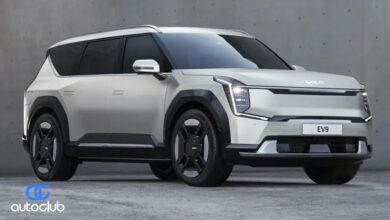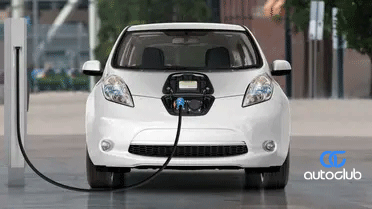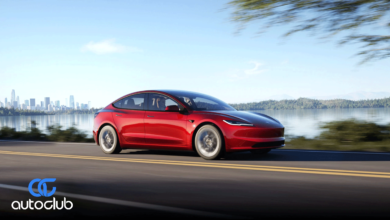The Environmental Impact of Cars: A Discussion

Introduction
In today’s rapidly evolving world, the use of cars has become an integral part of our daily lives. While they provide convenience and mobility, it’s important to recognize that cars also have a significant impact on the environment. This article explores the various aspects of the impact of cars on the environment, shedding light on their effects and offering insights into potential solutions.
The Environmental Impact of Cars: A Comprehensive Overview
Air Pollution and Greenhouse Gas Emissions
Cars are a major contributor to air pollution and greenhouse gas emissions. The combustion of fossil fuels, such as gasoline and diesel, releases pollutants into the air, including carbon dioxide (CO2), nitrogen oxides (NOx), and particulate matter. These pollutants contribute to smog formation, respiratory issues, and global climate change. The excessive CO2 emissions from cars are a key driver of the greenhouse effect, leading to rising temperatures and adverse weather patterns.
Resource Depletion and Extraction
The production of cars requires significant amounts of resources, from metal ores for manufacturing to petroleum-based plastics for interiors. The extraction of these resources can result in habitat destruction, deforestation, and water pollution. Moreover, the energy-intensive processes involved in manufacturing contribute to the carbon footprint of cars before they even hit the road.
Congestion and Urban Planning
The growing number of cars on the road contributes to traffic congestion in urban areas. This not only leads to time and productivity losses for commuters but also increases fuel consumption and emissions. In response, urban planners are exploring ways to promote public transportation, carpooling, and the development of walkable and bike-friendly cities.

Noise Pollution
Cars are a significant source of noise pollution, particularly in densely populated areas. The constant honking, engine noise, and tire screeches can negatively impact human health, causing stress, sleep disturbances, and hearing impairment. Implementing noise barriers, quieter road surfaces, and promoting electric vehicles (EVs) can help mitigate this issue.
Energy Consumption and Sustainability
The reliance on fossil fuels for cars’ energy needs depletes finite resources and contributes to environmental degradation. The shift towards electric and hybrid vehicles offers a more sustainable alternative. EVs produce fewer emissions and can be powered by renewable energy sources, reducing the overall carbon footprint associated with transportation.
Land Use and Infrastructure
The extensive road networks and parking spaces required for cars can lead to urban sprawl and the conversion of natural habitats into developed areas. Promoting efficient land use and investing in public transit systems can help minimize the negative impact on landscapes and biodiversity.
Positive and Negative Sentiments Towards Change
As awareness of the environmental impact of cars grows, individuals and communities are expressing both positive and negative sentiments. Some embrace sustainable transportation options, advocating for cleaner vehicles and reduced car usage. On the other hand, resistance to change is also evident, as some view cars as symbols of freedom and convenience.

Solutions and Innovations
Addressing the environmental impact of cars requires a holistic approach. Governments, industries, and individuals can all play a role in finding solutions. This includes investing in public transportation, incentivizing the adoption of EVs, implementing stricter emissions standards, and promoting sustainable urban planning.
FAQs
Are electric cars truly better for the environment?
Yes, electric cars produce fewer emissions and have a lower overall environmental impact compared to traditional gasoline-powered cars.
Can carpooling significantly reduce environmental harm?
Yes, carpooling helps reduce the number of vehicles on the road, leading to lower emissions and decreased traffic congestion.
What role do regulations play in mitigating car-related pollution?
A: Regulations, such as emissions standards and fuel efficiency requirements, encourage the automotive industry to produce cleaner and more sustainable vehicles.
Q: How can I reduce my carbon footprint as a car owner?
A: You can reduce your carbon footprint by opting for an electric or hybrid vehicle, maintaining regular vehicle maintenance, and practicing fuel-efficient driving habits.
Q: Are there any eco-friendly alternatives to personal car ownership?
A: Yes, alternatives include using public transportation, cycling, walking, and utilizing ridesharing services.
Q: What advancements are being made in sustainable car manufacturing?
A: Sustainable car manufacturing involves using recycled materials, optimizing production processes, and exploring renewable energy sources to power manufacturing facilities.
Conclusion
The environmental impact of cars is a multifaceted issue that requires collective efforts to address. From air pollution to resource depletion, the effects of car usage on our planet are undeniable. However, with the adoption of sustainable transportation options, technological innovations, and policy changes, we have the potential to minimize the negative consequences and create a greener future. By acknowledging the challenges and embracing solutions, we can pave the way for a more environmentally conscious approach to mobility.




